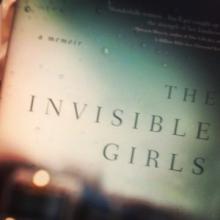Somali refugees
SACIIDO SHAIE scrolled through Facebook, stopping at video of a press conference about one of President Trump’s cabinet appointments.
She shook her head and mumbled about his executive order that temporarily barred refugees and immigrants from several Muslim-majority countries—including Somalia—from entering the United States.
Somali immigrants such as Shaie have been arriving in Minnesota since the 1990s. But ever since then-candidate Trump declared that Minnesota has “suffered enough” from accepting Somali refugees, the roughly 50,000 members of the Somali community in the state have become fearful. “This is the first time I have felt uncertain about my life here,” said Shaie, who is Muslim.
Shaie was a child when her family came to the U.S. in 1992 after spending almost a year in a refugee camp in Kenya, but she remembers the civil war in Somalia that led to her family’s flight. As she drove away from her home with her mother, she remembers seeing a baby attempting to nurse from his dead mother’s breast. “Buildings were burning, houses falling down, people dying—just chaos,” she said recently while cooking dinner in her North Minneapolis apartment. “Every time I see scenes from Syria, it reminds me of Somalia.”
Her family owned several stores in Somalia and lived in a large house. She described their life before the conflict as upper-middle class. Now she has three children ranging from 9 to 15 years old. In 2007, she cofounded a nonprofit that empowers Somali youth to be leaders in the community.
Shaie views her family as “100 percent Somali and 100 percent American” and hopes her children feel the same. “My culture is one of those things I can’t live without,” she said. “The more you know your culture and other cultures, the more you’ll be smart, and I want my kids to be smart.”
She wishes more people would understand that the Somali community is peace-loving.
“We’re here to be part of the [American] fabric, and that’s all.”
Sarah Thebarge is the author of The Invisible Girls, a new memoir from Jericho Books. I was fortunate to get a few minutes to ask her a few questions about her touching, funny, compelling new piece of work.
Q: Your book is about Somali Refugees and also about your survival of breast cancer. How do you write one book about both things?
A: When I met the Somali mom and her girls on the MAX the first time, we had a lot of differences – different religions, ethnicities, skin color, and language. But as I developed a relationship with them, I realized that we had a lot in common at the core. Because I’d been a little girl growing up in a fundamentalist culture, where men buried you under yards of fabric and lists of rules and taught you that women were supposed to be silent. And I knew what it was like to be a refugee of sorts, because after I nearly died of cancer in my 20s, I sold everything I had and got on a plane with a suitcase of clothes and flew from the east coast to Portland, Ore., and started over. And so even though the narrative lines of the Somali refugee family and my cancer experiences seem disparate, they actually weave together well, because all this time, I’d been an Invisible Girl, too.

